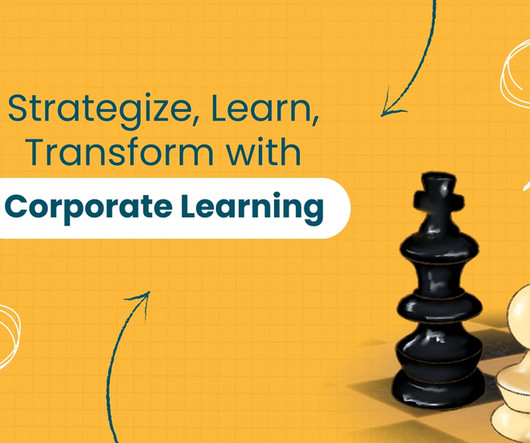What Is Peer-to-Peer Learning in the Workplace? (+Examples)
WhatFix
SEPTEMBER 14, 2022
Colleagues at work can also learn from each other through a similar approach. According to an HBR survey , over half of employees look to their peers for learning opportunities and solving problems. Here are seven types of peer-to-peer learning examples commonly found in a corporate setting. Action learning groups.







































Let's personalize your content